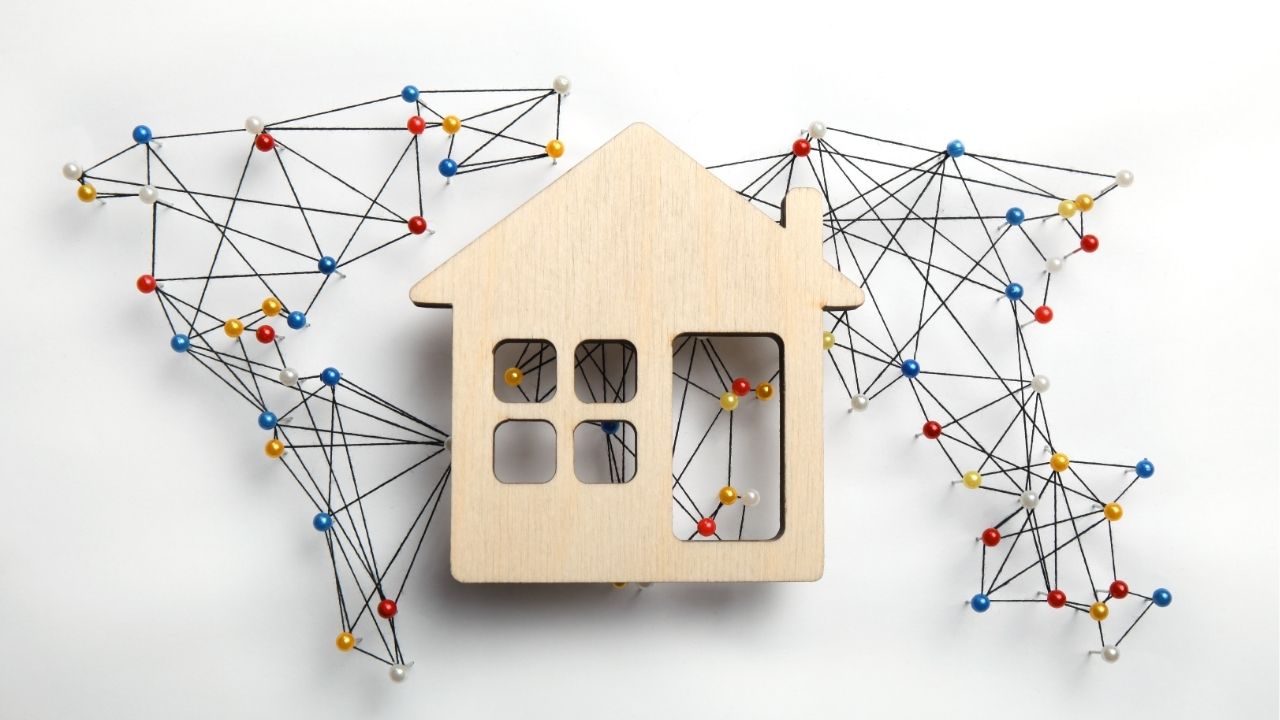 The real estate world is experiencing a major shift as technology reshapes the way homes are marketed and sold. Artificial intelligence and smart digital tools are transforming how agents connect with potential buyers. Traditional open houses, once the main event for showing homes, are now being enhanced, or sometimes replaced, by virtual experiences that allow buyers to explore properties without leaving their couch.
The real estate world is experiencing a major shift as technology reshapes the way homes are marketed and sold. Artificial intelligence and smart digital tools are transforming how agents connect with potential buyers. Traditional open houses, once the main event for showing homes, are now being enhanced, or sometimes replaced, by virtual experiences that allow buyers to explore properties without leaving their couch.
The Power of Virtual Tours
Virtual tours have become a game changer for both buyers and sellers. With high-definition visuals and 360-degree walkthroughs, buyers can explore every room, examine details, and get a feel for the home at their own pace. This level of convenience saves time for everyone involved and allows sellers to reach a wider audience. Out-of-town and even international buyers can now “visit” homes instantly, expanding the pool of interested parties far beyond local markets.
Artificial Intelligence in Marketing
Artificial intelligence is quietly revolutionizing real estate marketing. AI tools analyze buyer behavior, interests, and online patterns to predict who is most likely to be interested in a specific property. Instead of broad, one-size-fits-all advertising, these systems generate targeted campaigns that speak directly to potential buyers. From social media ads to property recommendations, AI ensures that the right message reaches the right people, often leading to quicker sales and stronger offers.
Smart Assistance and Customer Experience
Technology is also improving the home-buying experience through virtual assistants and chat features. Interested buyers can ask questions, request additional photos, or schedule a showing, often in real time and without waiting for office hours. These instant interactions help keep buyers engaged and informed, increasing the likelihood that an online inquiry will turn into an actual showing.
Why the Human Touch Still Matters
Even with advanced technology, real estate remains a people business. Agents bring expertise, negotiation skills, and personal insight that no machine can replicate. Many buyers still want to step inside a home, feel the flow of the space, and visualize their future there. Virtual tools cannot replace the emotional connection that happens when someone walks through a home in person.
The Future of the Open House
The open house is not disappearing, it is evolving. Today’s most successful agents combine the best of both worlds: the convenience of AI-driven marketing with the personal connection of traditional showings. Virtual tours attract more qualified buyers, and in-person visits allow those buyers to confirm their decision with confidence.
Embracing Technology, Enhancing Relationships
The future of real estate belongs to professionals who embrace innovation while keeping relationships at the heart of their business. Technology is not here to replace open houses, it is here to make them smarter, more efficient, and more accessible than ever before.
 The final walkthrough is one of the last steps before closing on your new home. It may feel like a formality, but it serves an important purpose. This is your chance to confirm that everything is in the condition you agreed to and that the home is truly ready for you to move in. Knowing what to expect can help you approach this step with confidence.
The final walkthrough is one of the last steps before closing on your new home. It may feel like a formality, but it serves an important purpose. This is your chance to confirm that everything is in the condition you agreed to and that the home is truly ready for you to move in. Knowing what to expect can help you approach this step with confidence. When searching for a new home, buyers often get caught up in curb appeal, square footage, or how recently the roof was replaced. While those details are certainly important, focusing on the most impactful rooms inside the home can help determine whether a property will truly meet your needs and lifestyle. Here are the key rooms to evaluate carefully when buying a home.
When searching for a new home, buyers often get caught up in curb appeal, square footage, or how recently the roof was replaced. While those details are certainly important, focusing on the most impactful rooms inside the home can help determine whether a property will truly meet your needs and lifestyle. Here are the key rooms to evaluate carefully when buying a home. When it comes to real estate, you’ve likely heard the phrase, “Location, location, location!” This isn’t just a catchy mantra, it’s a fundamental truth that underscores the value of any property. While a home’s design, size, and features play a role in your buying decision, the location is often the most critical factor that determines both the property’s current worth and its long-term potential.
When it comes to real estate, you’ve likely heard the phrase, “Location, location, location!” This isn’t just a catchy mantra, it’s a fundamental truth that underscores the value of any property. While a home’s design, size, and features play a role in your buying decision, the location is often the most critical factor that determines both the property’s current worth and its long-term potential. In the rapidly evolving landscape of real estate, smart homes are emerging as a transformative force, reshaping the way we live and interact with our living spaces. Automation and technology have become integral components of modern homes, offering unprecedented levels of convenience, efficiency, and sustainability. This article delves into the burgeoning realm of smart homes, exploring the impact of automation and technology on the real estate industry and the future trends that promise to redefine our concept of home.
In the rapidly evolving landscape of real estate, smart homes are emerging as a transformative force, reshaping the way we live and interact with our living spaces. Automation and technology have become integral components of modern homes, offering unprecedented levels of convenience, efficiency, and sustainability. This article delves into the burgeoning realm of smart homes, exploring the impact of automation and technology on the real estate industry and the future trends that promise to redefine our concept of home. During the past few months, everyone has been going through unprecedented times. Every industry has been impacted and this includes the real estate sector. There are lots of people who are still trying to buy and sell a home during an era of social distancing. This can make it hard to look at a prospective property in person. The good news is that there are still ways for people to buy a house virtually. There are a few tips that everyone should keep in mind.
During the past few months, everyone has been going through unprecedented times. Every industry has been impacted and this includes the real estate sector. There are lots of people who are still trying to buy and sell a home during an era of social distancing. This can make it hard to look at a prospective property in person. The good news is that there are still ways for people to buy a house virtually. There are a few tips that everyone should keep in mind.  Case-Shiller’s National Home Price Index showed 3.20 percent national home price growth in September, which was 0.10 percent higher than August’s reading of 3.10 percent. The 20-City Home Price Index showed the continued impact of exorbitant home prices on both coasts as home price growth slowed in high-cost areas and smaller markets experienced upward pressure on home prices as home buyers were seeking affordable homes.
Case-Shiller’s National Home Price Index showed 3.20 percent national home price growth in September, which was 0.10 percent higher than August’s reading of 3.10 percent. The 20-City Home Price Index showed the continued impact of exorbitant home prices on both coasts as home price growth slowed in high-cost areas and smaller markets experienced upward pressure on home prices as home buyers were seeking affordable homes.